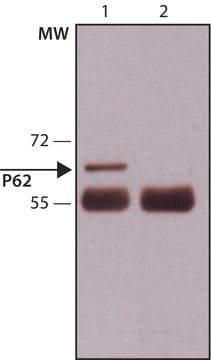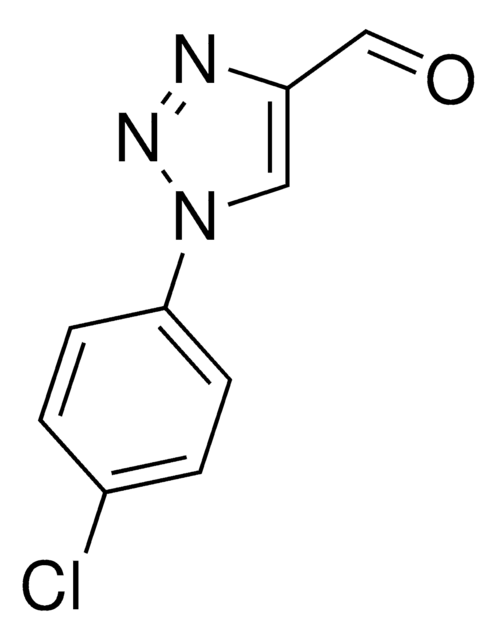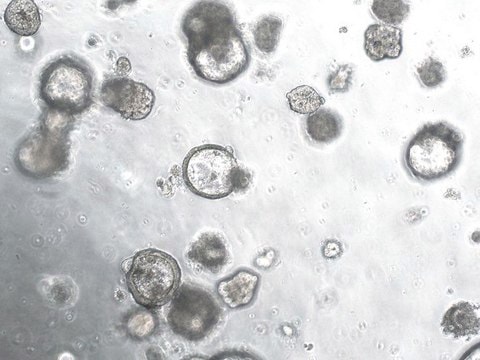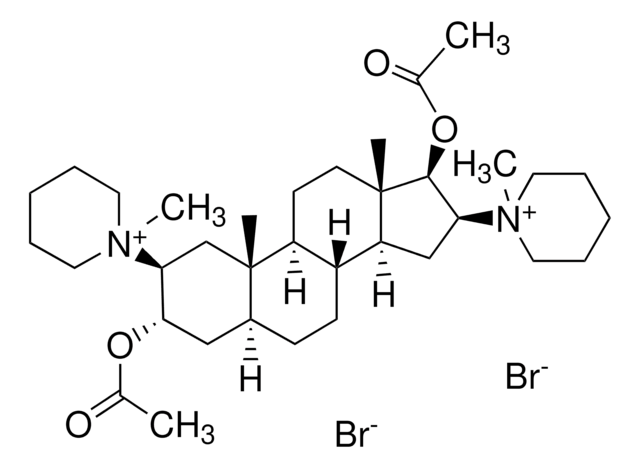MABN130
Anti-SQSTM1 Antibody, clone 20F1.1
clone 20F1.1, from mouse
Synonym(s):
Sequestosome-1, EBI3-associated protein of 60 kDa, EBIAP, p60, Phosphotyrosine-independent ligand for the Lck SH2 domain of 62 kDa, Ubiquitin-binding protein p62
About This Item
Recommended Products
biological source
mouse
Quality Level
antibody form
purified antibody
antibody product type
primary antibodies
clone
20F1.1, monoclonal
species reactivity
human, rat
technique(s)
immunohistochemistry: suitable
western blot: suitable
isotype
IgG2aκ
NCBI accession no.
UniProt accession no.
shipped in
wet ice
target post-translational modification
unmodified
Gene Information
human ... SQSTM1(8878)
Related Categories
General description
Immunogen
Application
Neuroscience
Developmental Signaling
Quality
Western Blotting Analysis: 1.0 µg/mL of this antibody detected SQSTM1 in 10 µg of rat brain tissue lysate.
Target description
Physical form
Storage and Stability
Analysis Note
Rat brain tissue lysate
Other Notes
Disclaimer
Not finding the right product?
Try our Product Selector Tool.
recommended
Storage Class Code
12 - Non Combustible Liquids
WGK
WGK 1
Flash Point(F)
Not applicable
Flash Point(C)
Not applicable
Certificates of Analysis (COA)
Search for Certificates of Analysis (COA) by entering the products Lot/Batch Number. Lot and Batch Numbers can be found on a product’s label following the words ‘Lot’ or ‘Batch’.
Already Own This Product?
Find documentation for the products that you have recently purchased in the Document Library.
Our team of scientists has experience in all areas of research including Life Science, Material Science, Chemical Synthesis, Chromatography, Analytical and many others.
Contact Technical Service








